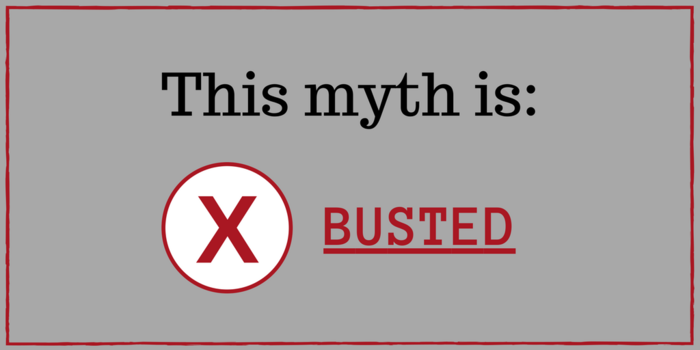This is the third entry in a multi-part series on Capitalism Mythbusters.
In a previous installment of the Capitalism Mythbusters series, I busted the myth that free markets lead to intolerance toward minorities. In this post, I examine the myth that free markets negatively impact your health.
Origins of the myth
Many of the current beliefs about free markets and health outcomes (mainly as they relate to obesity) stem from the idea that markets themselves lead to excess. This idea was popularized by documentaries such as “Supersize Me,” “Food, Inc.,” and “King Corn.”
As fears grew about the state of our national health, some people called for increased regulation of our dietary options, resulting in higher taxes on sugary drinks and the now defunct ban on “big gulps” in New York City. These policies are fed by the perception that it is the choice and excess of free markets that lead to too-high obesity, diabetes, and mortality rates. The myth claims that the true detriment of unfettered capitalism is an early death.
A look at the past
This myth has also been propagated by the latest culinary trends in farm-to-table restaurants, community-supported agriculture, and an increased focus on locally produced food. I am not opposed to these trends or movements, but we need to fact-check the false picture these movements often paint of our agrarian past.
The United States has a rich agricultural history. However, the early years of our civilization should not be held up as a beacon of bountiful and nutritious food. On the contrary, most people were focused on scarcity and consumption. It was opportunity – not choice – that guided people’s habits.
In addition to potential starvation, the agrarian society – and even early industrial times – were plagued by high child and maternal mortality rates. Childbirth remained extremely dangerous, and even the common cold could prove deadly. When thinking about the health problems of today, it is important not to gloss over the serious issues faced in the past.
To understand the relationship between capitalism and health, let’s look to the data.
What research says
In an analysis of economic freedom and BMI, Lawson et al. (2016)[1] find that higher economic freedom (freer markets) leads to a slightly increased BMI for males in developing countries only. There is no effect on the BMI for women in developing countries or on individuals of either sex in developed countries. Furthermore, they find that increased economic freedom (freer markets) leads to lower mortality rates for men and women. They also report that increased public health spending does not decrease obesity but actually increases it in some cases.
The results of Lawson et al. (2016) are consistent with the earlier work of Stroup (2007)[2] and Grubel (1998)[3]. Stroup (2007) found that increases in economic freedom lead to better outcomes in terms of life expectancy, child mortality, water access, and vaccinations.
Health outcomes and obesity are also related to physical activity, which has been shown to correlate with economic freedom. Using international data from 34 countries, Ruseski and Maresova (2014)[4] demonstrate that economic freedom (freer markets) is associated with higher participation in physical activity. However, using data from just the United States, Hall et al. (2018)[5] finds that states with higher levels of economic freedom have lower participation rates.
While this body of academic literature is not exhaustive, it does paint a fairly consistent picture. Free markets (as measured by economic freedom indices) do not lead to catastrophic health outcomes. In fact, the data suggests that we enjoy longer and happier (see my previous post on happiness) lives when markets are freer.
Consider this myth busted.

If you have a myth about capitalism and want to know what the research has to say, email your myth to ndsu.pcpe@ndsu.edu
Meet the Author
Jeremy Jackson is the director of the Center for the Study of Public Choice and Private Enterprise (PCPE) and an associate professor in the NDSU Department of Agribusiness and Applied Economics. Read his bio.
[1] Lawson, R. A., Murphy, R. H., & Williamson, C. R. (2016). The relationship between income, economic freedom, and BMI. Public health, 134, 18-25.
[2] Stroup, M. D. (2007). Economic freedom, democracy, and the quality of life. World Development, 35(1), 52-66.
[3] Grubel, H. G. (1998). Economic freedom and human welfare: Some empirical findings. Cato J., 18, 287.
[4] Ruseski, J. E., & Maresova, K. (2014). Economic freedom, sport policy, and individual participation in physical activity: An international comparison. Contemporary Economic Policy, 32(1), 42-55.
[5] Hall, J. C., Humphreys, B. R., & Ruseski, J. E. (2018). Economic Freedom and Exercise: Evidence from State Outcomes. Southern Economic Journal.


